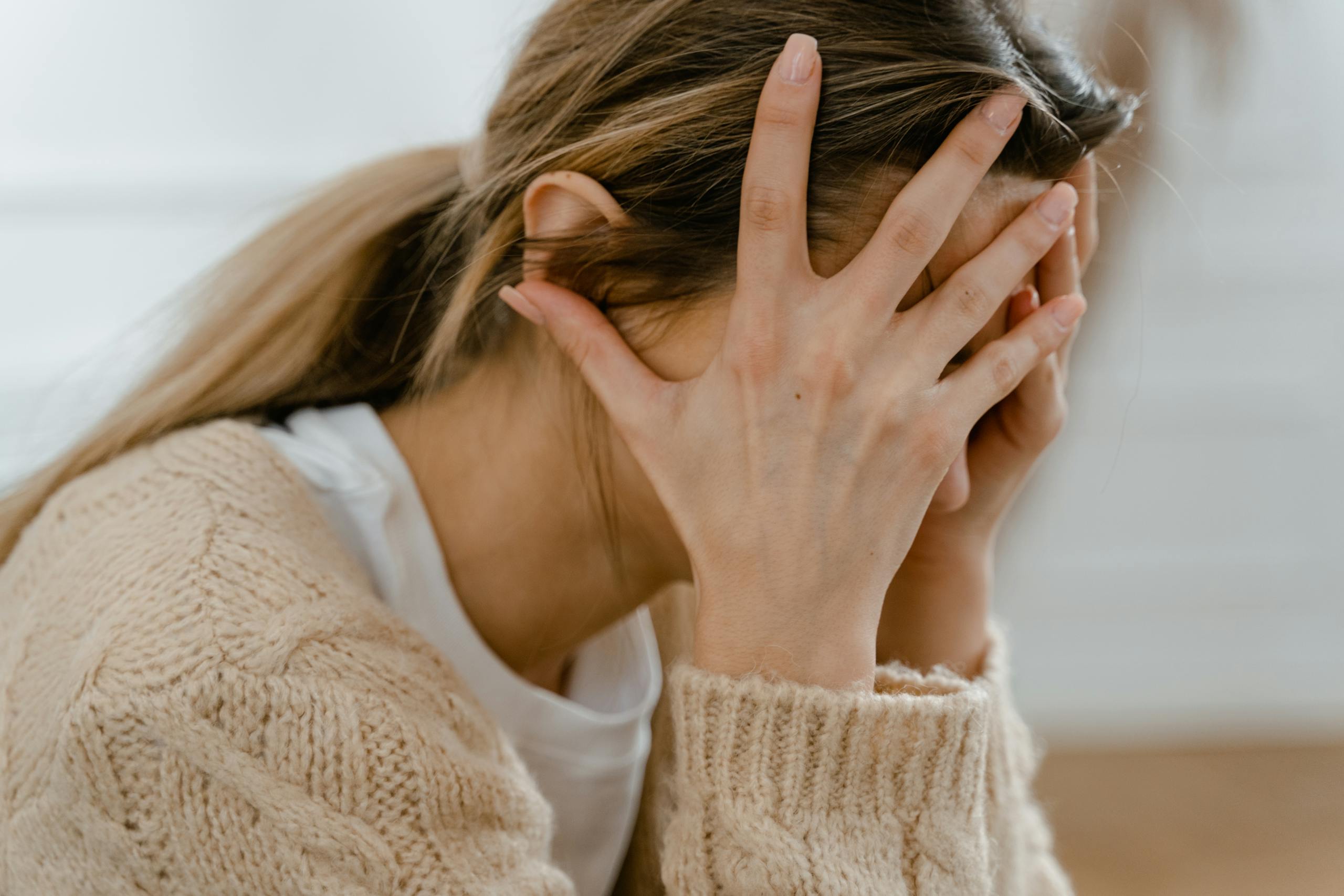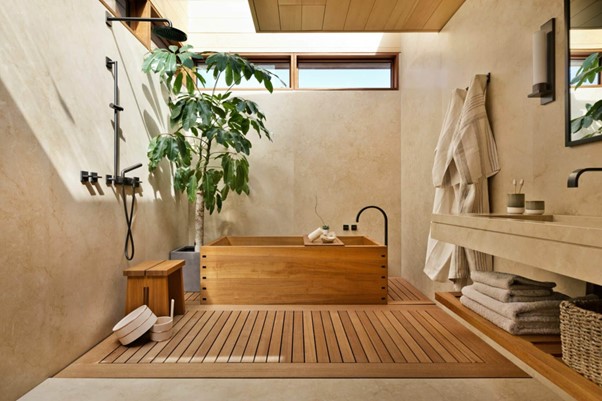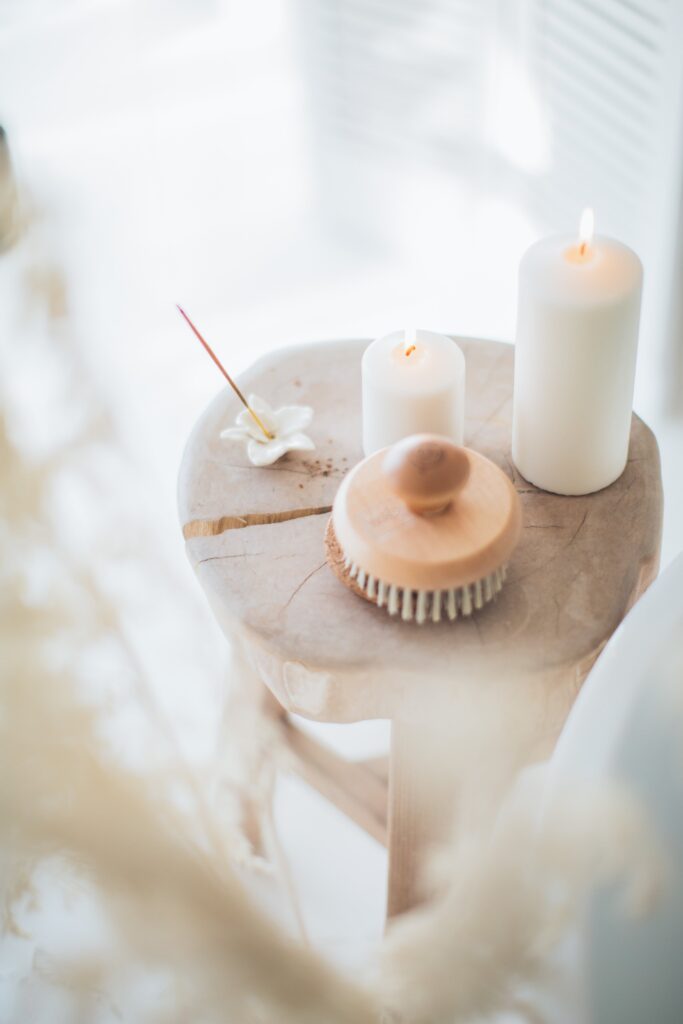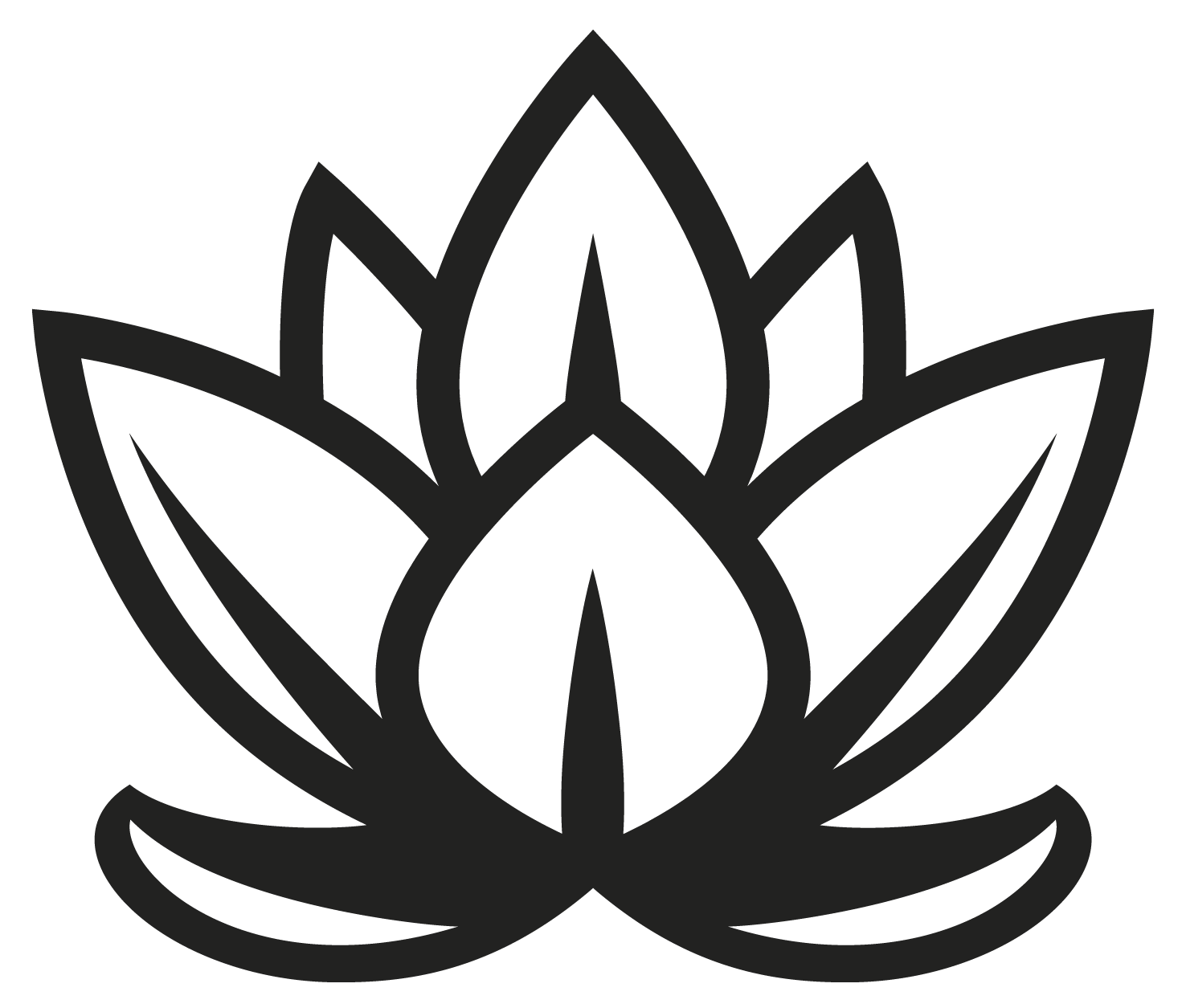Feeling Frazzled?

Do you feel frazzled? Are you so busy you haven’t had time to nurture yourself recently? Would you love some more peace and joy in your day?
I have been taking notice of how many people ask me how my day or week has been and if I have been busy? I have been pondering on how as a society we are expected to be busy all the time. Is this what we all want? Instead, how can we live a slower life and what about nurturing practices that make us feel whole and balanced, more able to cope with life in a joyful way. Do these rate in our everyday expectations and lifestyle? I think there are a rising number of people who value the slower pace of life, are giving themself permission to enjoy the day more, and nurture themselves.
Over the last few months, I have been really focusing on nourishing and nurturing my body, mind and spirit in a much deeper way with a return to Ayurvedic practices for my Dosha or constitution. One of those practises is a daily Abhyanga, or daily self-massage, before showering or bathing.
Abhyanga is believed to have the similar effect to being saturated with love. I find there is nothing more nurturing than doing some dry brushing and then rubbing warm sesame oil from head to toe before having your shower or luxuriating in an aromatherapy bath if you have extra time. A daily abhyanga session, even 5 minutes (longer if you have the time) will make all the difference to how your skin feels, how relaxed you feel, and also balances your Dosha or constitution.
One of the ancient texts of Ayurveda states that “The body of one who uses oil massage regularly does not become affected much even if subjected to accidental injuries, or strenuous work. By using oil massage daily, a person is endowed with pleasant touch, trimmed body parts and becomes strong, charming and least affected by old age.”
Some of the benefits of Abhyanga are that:
- it nourishes the body; calms the nerves
- benefits your sleep; decreases aging; makes the hair lustrous
- lubricates the skin and joints; helps with muscle tone in the body
- increases circulation; assists in elimination of toxins
- stimulates the internal organs
- enhances vision; pacifies Vata and Pitta while stimulating Kapha constitutions
- helps you to start the day in a more relaxed way.
To perform Abhyanga or self-massage, simply have a bathing brush handy. Gently brush your entire body going from head to toes and soles of the feet. Then gently massage warmed oil over your entire body starting with the hair, the face, neck and shoulders and so on down to the toes and feet. Move into the shower and allow the warm water to run over you before gently shampooing your hair with natural shampoos and conditioners. Use as little soap as possible, a natural one of course. Ayurveda mentions using soap only in ‘strategic places’ so that you are not washing off the oil completely. In this way your skin feels lovely and soft afterwards. Towel off gently afterwards before dressing ready for a relaxed and calm day ahead. Of course if you have longer in the morning you can indulge in an aromatherapy bath instead – pure luxury!

Other traditions use bathing as a way to nurture themselves. The Japanese, for instance, also use bathing as a ritual to bring balance and nourishing energy to the body, mind and spirit. Even though Japanese houses are generally much smaller than our Western ones, they still dedicate a room to bathing and its ritual. Often, they have a deep wooden tub, traditionally made from fragrant Hinoki cypress. Where possible a window is placed near the tub so the bather can enjoy views of nature via the garden. Adjacent to the bathing area with the tub is another area where the bathers first wash under a hand shower. There may be a small stool to sit on, a wooden bucket to use, and the floor maybe a slatted wooden floor, feeling more comfortable under the feet.
Bathing is considered a ritual, not a hurried affair. Clothing is removed and a cotton kimono is worn to the bathing room, where the tub has been filled to the brim with steaming water. Before entering the tub, the bather sits on the small stool and scrubs from head to toe removing the dirt and cares of the world, as well as any loose skin cells. They then shower off, rinsing with either the hand shower or bucket. They are now ready to soak in the tub allowing the skins pores to open and the body, mind and spirit to enjoy the pleasure of soaking. No soap is used in the tub. Instead, the use of salts or oils that enhance the time in the tub allowing for a restorative, sensuous and luxurious experience.
As a Westerner we can enjoy this sensual experience just as easily by incorporating Abhyanaga, self-massage, or by using the ideas behind the Japanese ritual of bathing. Bath designs are now much more luxurious, bathrooms have become the room to decorate, and even soaking tubs such as Hydrotherapy spas are often included. We have a Hydrotherapy spa situated just outside our bedroom door on the deck and there is nothing nicer than a soak together, connecting after the day has finished, and totally relaxing before retiring to bed, warm and restored.
On one trip to Bali we stayed in a Traditional mountain retreat where all bathing was done outside in a sunken stone bath surrounded by high moss covered walls. Every day the staff would place flower heads around the bath, incense sticks beside it, and the usual beautiful hand-made soaps and rolled towels. It was one of our greatest pleasures while staying in this place to have our daily soak in the tub, totally secluded but out amongst nature.
Here are a few ideas to get you started on your nurturing and nourishing bathing ritual:
Collect loofahs, brushes, sponges and place in a basket or some other item that feels inspiring to you.
Have a supply of organic almond oil or sesame oil for your self-massage in beautiful bottles. Also have a range of good quality aromatherapy oils that you love to sprinkle in your bath. The more expensive ones are better quality but you only need a couple of drops so they last ages.
Buy the most luxurious soaps you can find and afford as there is nothing nicer than using a natural hand-made soap to gently wash yourself with.
For a little bit of luxury, invest in a traditional cotton kimono which are not expensive but every time you put it on you will feel as though you are in ‘bathing’ mode.
Beautify your bathing space with decorative items and towels that suggest luxury and nurturing to you. Use candles, shells, flower heads or whatever pleases your senses. Remove all the kid’s toys if they have been there before you having fun in the bath.
If your bathroom has a window, make the outside as attractive as possible with planting and even statues that suggest calmness and peace to you. If privacy is an issue use a bamboo or translucent blind so that you still receive light from outside.
Place a robe hook near your bath or a peg for your kimono or towels. My husband made a lovely wooden towel holder out of a piece of wood and dowel which is right near our spa. Perfect to hang our robes or towels on when we go outside for a spa.
If your bathroom has a shower in it as well you are already on the way to creating your own Eastern bathing space. Include a slatted wooden shower or bath mat, small wooden stool, a small wooden bucket from a Japanese supply shop, and your brushes, sponges, oils, soaps and towels on trays or in baskets. Make it as pleasing to your senses as you can. If you need ideas look at decorating magazines or go online and look at bathroom images, especially Eastern or Japanese style ones replicating them for yourself.
Every time you immerse yourself in ritual such as daily self-massage or a deep bathing ritual you are opening yourself up to self-love, participating in opening up to your Divine inner self, cleansing and purifying your body, mind and spirit while allowing yourself to move through the days with love and peace – not being ‘busy’, but still getting things done.

